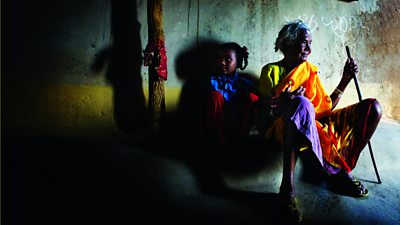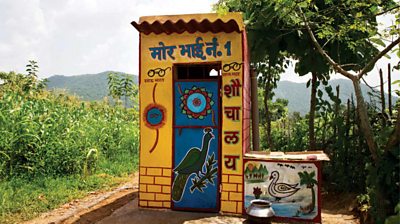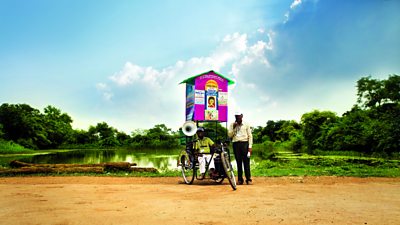Traditional cultural practices and a lack of access to toilets make open defecation a way of life for millions of people in India.
The country accounts for nearly 60% of the 1.1 billion people in the world who openly defecate, a practice which poses a serious health threat to children and adults alike.
In 2014, the Government of India launched a large scale initiative called (also known as the Clean India Mission) to construct toilets on a mass level and improve sanitation across the country.
Over the last few years, ±«Óãtv Media Action has been supporting the Swachh Bharat Mission through various innovative projects to help change attitudes and behaviours – both amongst key stakeholders and the general public – towards sanitation practices across India.

‘An Open Mind’ and ‘A People’s Movement’
Working alongside the Bill & Melinda Gates Foundation and the Government of India, we conducted research into what had persuaded people to switch from open defecation to using toilets and latrines.
showcases the inspiring efforts taken by people across India to end open defecation in their communities. The photography book we produced features ‘sanitation champions’, including a man who pledged to cut-off his prized moustache unless everyone in his village built a toilet (they did) and a women’s self-help group who managed to build 50 toilets for their community in one day. The book is used by key decision-makers in the government, policy-makers and practitioners.
We also produced a series of (in English and Hindi) called ‘A People’s Movement’. The films tell the real stories of individuals from different walks of life who have adopted innovative ways of encouraging toilet usage and safe waste management practices in their communities. The series was designed to help health practitioners understand what works and why in the fight against open defecation, so they can replicate success elsewhere.

Characters inspire change
In 2017, we launched a , each 2 minutes long, told by a travelling salesman character called Shaucha Singh. Each episode aims to debunk myths and misconceptions about the construction, maintenance and use of toilets, while also highlighting the risks associated with open defecation.
The dramas aired on All India Radio – India’s public service broadcaster – as well as over 200 Vividh Bharati stations, 109 private FM channels, and 54 community radio stations in North India. In addition to Hindi, the series was translated and broadcast in nine other languages, covering the entire country.
We targeted young, rural men in particular through Shaucha Singh – to both encourage them to build toilets but also to challenge the social belief that only women, the elderly or sick family members should be using toilets.

Project information
| Project name |
Ending Open Defecation (2015-2016) Strategic Communications Support to the Government of India on Sanitation (2016-2018) |
| Funder | |
| Theme | Health |
| Outputs |
Ending Open Defecation – Research report, photography-book ‘An Open Mind’ and ‘A People’s Movement’ film series Strategic Communications Support – 10 short ‘Shaucha Singh’ radio dramas |
| Partners |
Ministry of Drinking Water and Sanitation, Government of India |
Learn more about Navrangi Re!
-
Read our findings in Journal of Development Communication
-
A powerful collection of stories from India's drive to become free of open defecation
-
A communication conclave on sanitation
